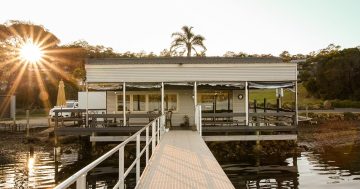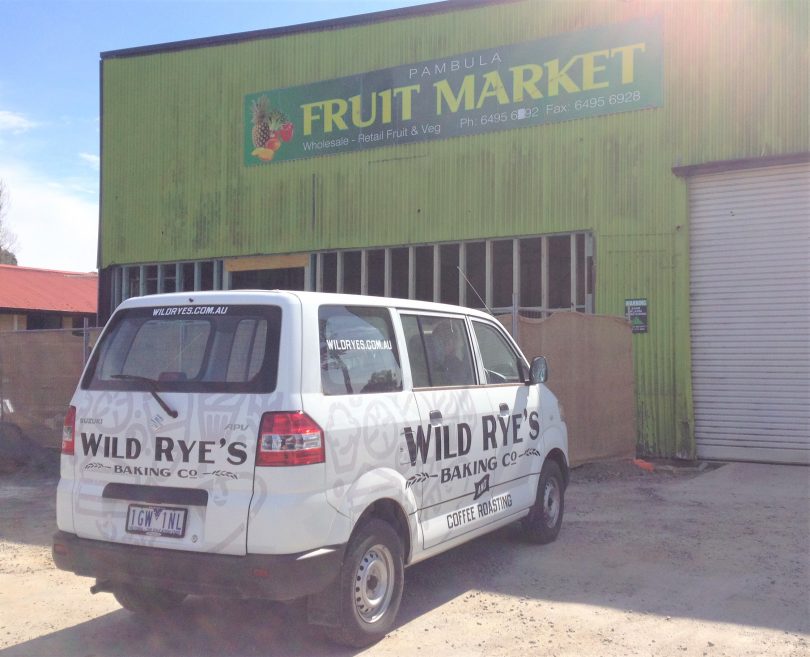
Pambula business Wild Rye’s bakery and roastery is expanding into the old fruit market building. Photo: Elka Wood.
Like a gangly child in too-short pants, Wild Rye’s in Pambula is outgrowing its premises. A new bakery and roasting room is currently under construction adding to the goodies that emerge from the existing bakery, coffee roastery and Cann River bakery.
The new addition, which locals will know as the old Pambula Fruit Market, will be a production space rather than a shopfront and will enable the Wild Rye’s empire to keep up with summer demand for bread, pies and coffee.
Head roaster Erin Tatnell has fostered the coffee roasting arm of Wild Ryes since its inception.
“We’re producing 15 tonnes of roasted coffee a year now,” Erin says, “which is a big change from where we were when we started roasting six years ago, when it was about a tonne and a half a year, just enough to supply the bakery and sell a few bags from the shelf.”
The locally roasted, origin focused coffee has been a hit from the beginning.
Even if you didn’t know it at the time, you’ve likely drunk Erin’s coffee at one of the dozen cafes and restaurants along the Far South Coast and into Victoria who now use Wild Rye’s beans – including Bega Cheese, The Daisy Lounge in Merimbula and Cafe Evolve in Bega.
Last November’s upgrade to a ‘Loring’ commercial roaster from Santa Rosa in California has been a game-changer for the team.
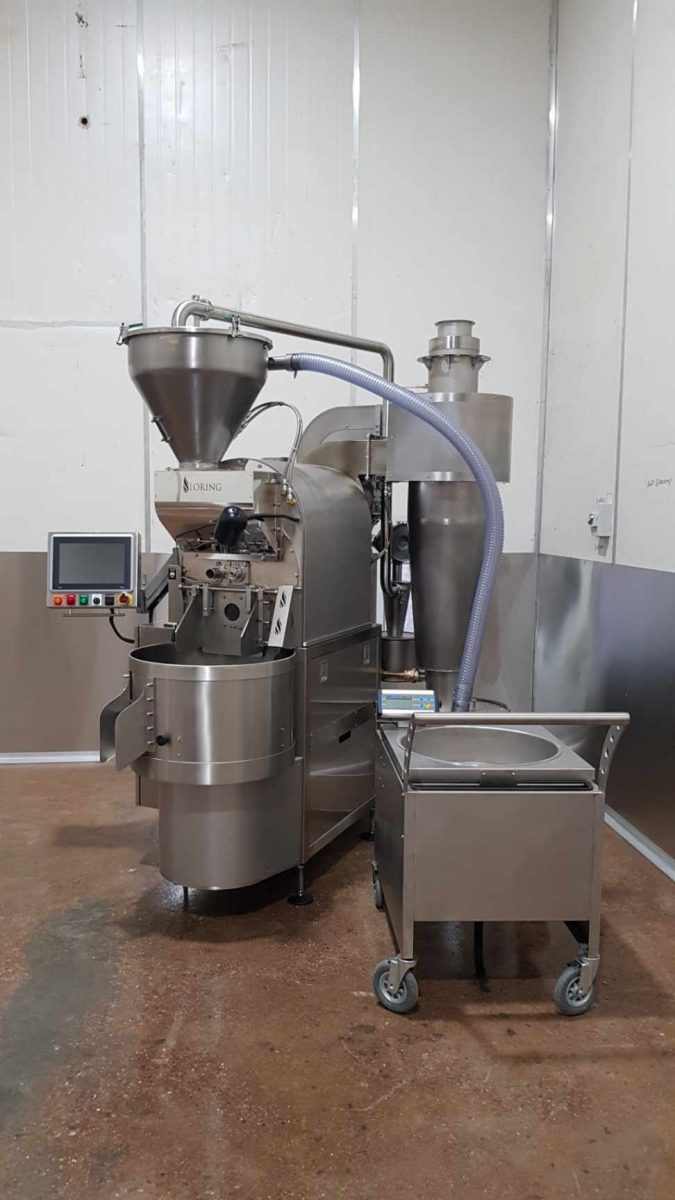
Wild Rye’s Loring coffee roaster is made in Santa Rosa, California. Photo: Elka Wood.
With all the tubes, vents and big colourful buttons, the roasting machine looks like it could roast anything, but luckily for us, it roasts nothing but fresh green coffee beans, imported from Central and South America in huge hessian bags weighing up to 70kg and spits out nothing but a wisp of carbon dioxide and a few Brazilian pebbles from the destoner.
Although much larger than Erin’s previous gas-powered roaster, the new machine produces 90% fewer emissions, he says.
Even with such a rapid expansion, Wild Rye’s owner Todd Weibe and Erin have stayed focused on ensuring the business is as ethical and environmentally responsible as possible, aware of the vulnerability of the market in a changing climate.
“The way Australians like their coffee relies on three things – coffee, water and milk,” Erin says “and all of those components are vulnerable to climate change.”
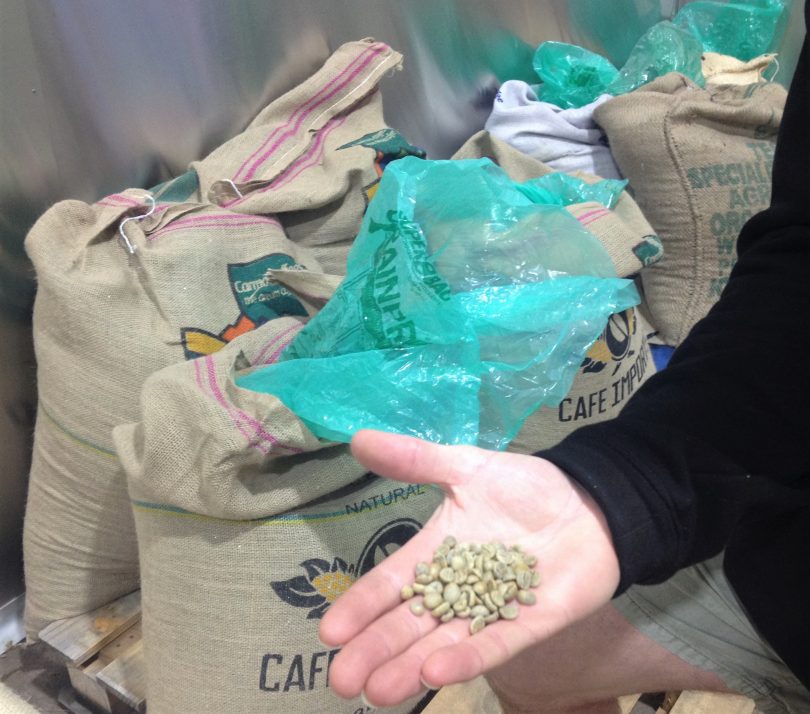
Erin roasts the green beans enough to bring out some chocolatey flavours but not so much that you can’t taste the origins of the beans, he says. Photo: Elka Wood.
As well as environmental factors, there’s also the question of fair payment for coffee farmers.
“When you’re talking about coffee and making sure farmers get a fair price, you have a lot of certifications which are useful ways to make sure the big coffee buyers are accountable and then you have one step up from that which is direct trade, where you meet the farmers and shake hands and that’s what we do,” explains Erin.
Wild Rye’s has developed a direct trade relationship with Carlos Montero, a farmer in Costa Rica, who has supplied a large portion of the company’s beans for the last few years and Erin has travelled to the farm to taste coffee onsite.
This relationship allows for feedback to Carlos and a better price for his beans, which allowed him to develop his infrastructure and ultimately improve quality, so much so that Wild Rye’s can no longer afford his coffee beans.
“The quality of his product has increased dramatically over the last few years, to the point that it’s worth three times more now than the minimum fairtrade price and four times as much as many farmers in Central America are getting on the open market,” Erin says “I wish we could still buy his coffee, of course, but I’m happy for him that he’s getting such a premium price.”
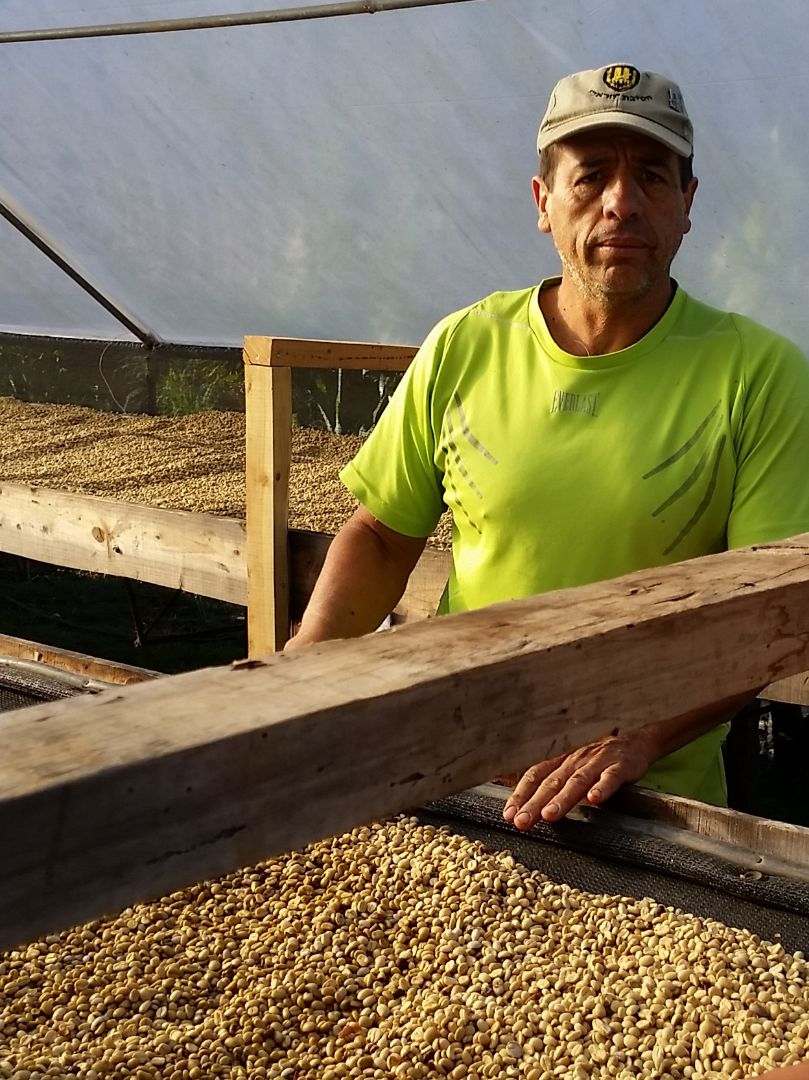
Costa Rican farmer Carlos Montero has provided coffee beans to Wild Ryes in previous years. Photo: Supplied.
Erin chooses beans from areas that have a history of coffee growing for several generations, that are close to the equator and are at high altitude – which produces a denser bean.
According to Erin, coffee is just like wine and the flavour is affected by where it’s grown.
“We used to drink house red or house white but now Australians understand that different regions and varieties of grape produce very different wines,” he says “it’s the same with coffee. That’s why our house blend is called the seasonal blend because it varies according to where I’m sourcing coffee.”
As Erin bustles me out the door of the roastery in Pambula, he hands me one for the road – a delicious iced Ethiopian coffee with a touch of brown sugar.
Chase one up yourself this summer as you travel along the south coast and into Victoria.







